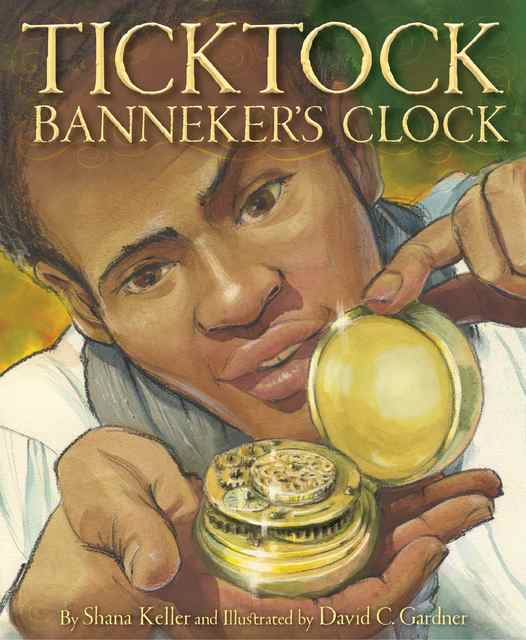Kids may feel it’s time for ‘Ticktock Banneker’s Clock’

Your favorite toy came apart yesterday.
That’s OK, though; it snapped right back together. It’s made to come apart, in fact; it’s one of those things you can build with, and you like doing that anyhow, which is why it’s your favorite. And in the new book “Ticktock Banneker’s Clock” by Shana Keller, illustrated by David C. Gardner, you’ll see how one really interesting project can lead to another.
There wasn’t much to do on that fall day near Chesapeake Bay. Once Benjamin Banneker had harvested his crops and prepared his farm for winter, there was plenty of time for thinking and dreaming.
A friend had recently given Banneker a pocket watch, and Banneker was quite fascinated with it. He’d never seen one before, and while he knew his friend would want the watch back, Banneker also knew that he could take it apart — if he was careful.
And that’s what he did that winter. He disassembled the watch to see the tiny little parts so he could understand how they worked together and how each gear ran the other gears. He studied them and drew diagrams — partly because he knew he’d have to put the watch back together again, and partly because he wanted to make a timepiece of his own. It “was a challenge and he loved challenges.”
But the pocket watch was made of metal. Metal was expensive. How could Banneker make a watch without any metals?
The answer arrived the following spring, right in front of him, right on his farm! He had plenty of wood, and wood should’ve worked fine, but when he started carving, it split. Banneker had to figure out how to keep his project from being ruined. It took much of the summer, but he finally realized that he knew all along how to cure wood so it wouldn’t splinter.
And so that next winter, Banneker carved and drew. He figured and thought some more, and he dreamed. Could a man make a working clock from scraps and scratch?
I’m sure you can surmise the answer to that, but what makes it remarkable is included on the last page of “Ticktock Banneker’s Clock.”
In her author’s note, Keller explains a bit more about the real Banneker and his life and times, which felt to me like I’d happily come upon a little-known corner of history that needed the light of day to fully appreciate. For the far end of the audience (kids up to 10), that fresh information may spur them to learn more about this brilliant self-taught inventor. Children on the lower end of the age-target (children in kindergarten and first grade) will learn, too, but may initially get more from the artwork by Gardner.
Overall, I think this is one of those unexpected gems from history that kids may find fun to learn about and that parents will like, too. For any reader looking for a new hero to emulate, “Ticktock Banneker’s Clock” is a book to make time for.
View publishes Terri Schlichenmeyer’s reviews of books for children weekly.